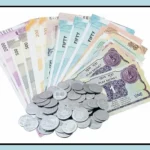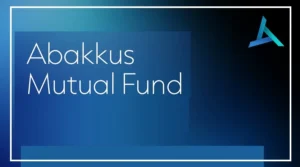From April 1, 2025, several significant changes in the income tax rules have come into effect, offering relief to taxpayers.
These changes, proposed by Finance Minister Nirmala Sitharaman in the Union Budget 2025, aim to reduce the tax burden on individuals, giving them more disposable income for spending.
Here are the major tax changes you should be aware of:
1. No Tax for Income Up to ₹12 Lakh (New Tax Regime)
Good News for Taxpayers: Income up to ₹12 lakh annually will not be taxed under the new income tax regime.
How It Helps: This rule brings immediate relief for taxpayers earning up to ₹12 lakh annually, as they will no longer need to pay any tax.
Example: A person with an annual income of ₹12 lakh will see their tax liability reduced by approximately ₹83,200. Similarly, a person earning ₹16 lakh will experience a tax reduction of ₹52,000.
Applicable for: This benefit applies only to those using the new income tax regime, which offers lower tax rates but fewer deductions.
2. Revised Tax Slabs in the New Regime
The government has revised the tax slabs under the new regime to make it more attractive:
For taxpayers not claiming deductions (like home loan interest or HRA), the new regime is now more favorable.
Deloitte India calculations suggest that taxpayers earning ₹12 lakh annually will benefit from lower taxes, and those earning ₹16 lakh will also see a reduction.
Should You Switch to the New Regime?
Yes, if you don’t claim deductions like home loan interest (Section 24B) or HRA.
Not Beneficial: If your income is over ₹24 lakh, and you claim ₹8 lakh or more in deductions, the old regime might still work out better for you.
3. Senior Citizens: TDS Relief on Fixed Deposits (FD)
Increased Limit for TDS Exemption: Senior citizens (aged 60 and above) will now be exempt from TDS on interest earned from Fixed Deposits (FDs) if the total interest earned is up to ₹1 lakh per year.
Earlier Limit: Previously, the limit for TDS exemption was ₹50,000.
Impact: If senior citizens earn more than ₹1 lakh in FD interest, the bank will deduct 10% TDS on the excess amount.
4. TDS Exemption for Rent Payments (Up to ₹6 Lakh)
For Tenants: If tenants pay annual rent up to ₹6 lakh, no TDS is required.
Earlier Limit: Previously, rent up to ₹2.40 lakh annually was exempted from TDS.
New Threshold: TDS will only be applicable if the annual rent exceeds ₹6 lakh.
5. Relief for Students and Travelers Sending Money Abroad
Liberalized Remittance Scheme (LRS):
New TCS Limit: Tax Collected at Source (TCS) will now apply only if the money sent abroad exceeds ₹10 lakh under the LRS.
Earlier Limit: The TCS was applicable if more than ₹7 lakh was sent.
For Students Studying Abroad:
If parents send more than ₹7 lakh (previously ₹7 lakh was the threshold), TCS will not be applicable if the money is sent from a loan taken from a financial institution.
6. Other Benefits and Adjustments
Simplified TDS on Rent: As mentioned earlier, TDS exemptions on rent payments up to ₹6 lakh will help reduce administrative complexity for both tenants and landlords.
General Corporate Relief: With the new tax slabs and reforms, individuals and businesses will see more funds available for spending, saving, or reinvestment, contributing to economic growth.
Who Will Benefit Most?
The new income tax regime with the revised tax slabs and increased exemptions will benefit middle-income and high-income earners who do not claim many deductions.
Those with an income below ₹12 lakh annually will be particularly relieved, as they won’t have to pay any tax at all.
Senior citizens and tenants will also enjoy significant relief from TDS, making it easier to manage their finances.
Taxpayers should carefully evaluate whether to continue with the old regime (which offers various deductions) or switch to the new regime (which offers lower tax rates without deductions) to optimize their tax outgo.

























